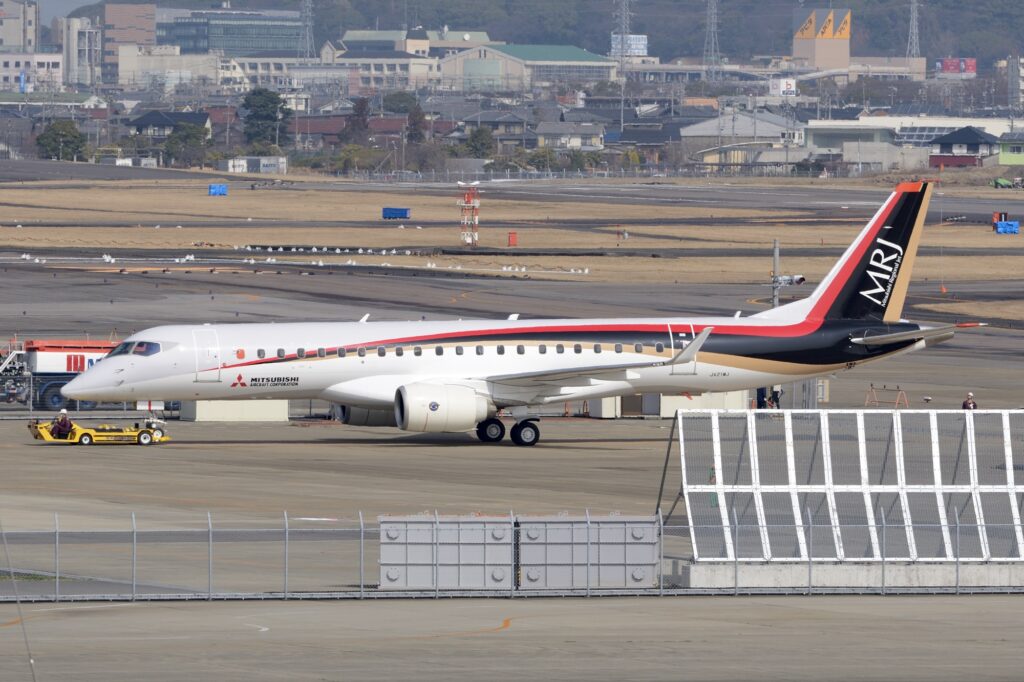Mitsubishi is set to axe the SpaceJet aircraft development program after years of multiple delays and development costs reaching billions.
According to reports by Nikkei Asia, the Japanese conglomerate is set to announce the decision as soon as Tuesday, February 7, 2023. The decision to finally cancel would come after Mitsubishi froze the development of the regional aircraft in October 2020, continuing the work on acquiring its Type Certificate (TC) from that point onwards.
Additionally, Mitsubishi would dissolve the subsidiary responsible for the SpaceJet’s development, namely Mitsubishi Aircraft Corporation.
But the program, first announced in 2008, never acquired the TC for the two types, namely a smaller (MRJ70) and bigger (MRJ90) aircraft that would seat between 70 and 80 and between 86 to 96 passengers in a two-class configuration. When Mitsubishi announced the SpaceJet, it planned it would enter into service in 2013.
In total, the Japanese conglomerate spent over ¥1 trillion ($7.5 billion) to this date. The freezing of development at Mitsubishi had intended to save ¥120 billion ($906 million) of costs, as more and more of the company’s cash reserves were going towards the faltering SpaceJet development program.
The program’s main hurdle was the fact that airlines and pilot unions in the United States (US) did not relax the scope clause requirements, which would have allowed the MRJ70 and/or MRJ90 to be operated as regional aircraft in the US.
When Trans States Airlines, a regional carrier in the US, canceled an order for 50 M90s, the then President of Mitsubishi Aircraft Corporation Hisakazu Mizutani stated that when the two sides signed the contract, “the outlook on the regional market was very different”.
“Scope clause has not relaxed as anticipated. We have since shifted our strategy to be responsive to the market realities in the U.S., in partnership with our airline customers,” added Mizutani in October 2019.

